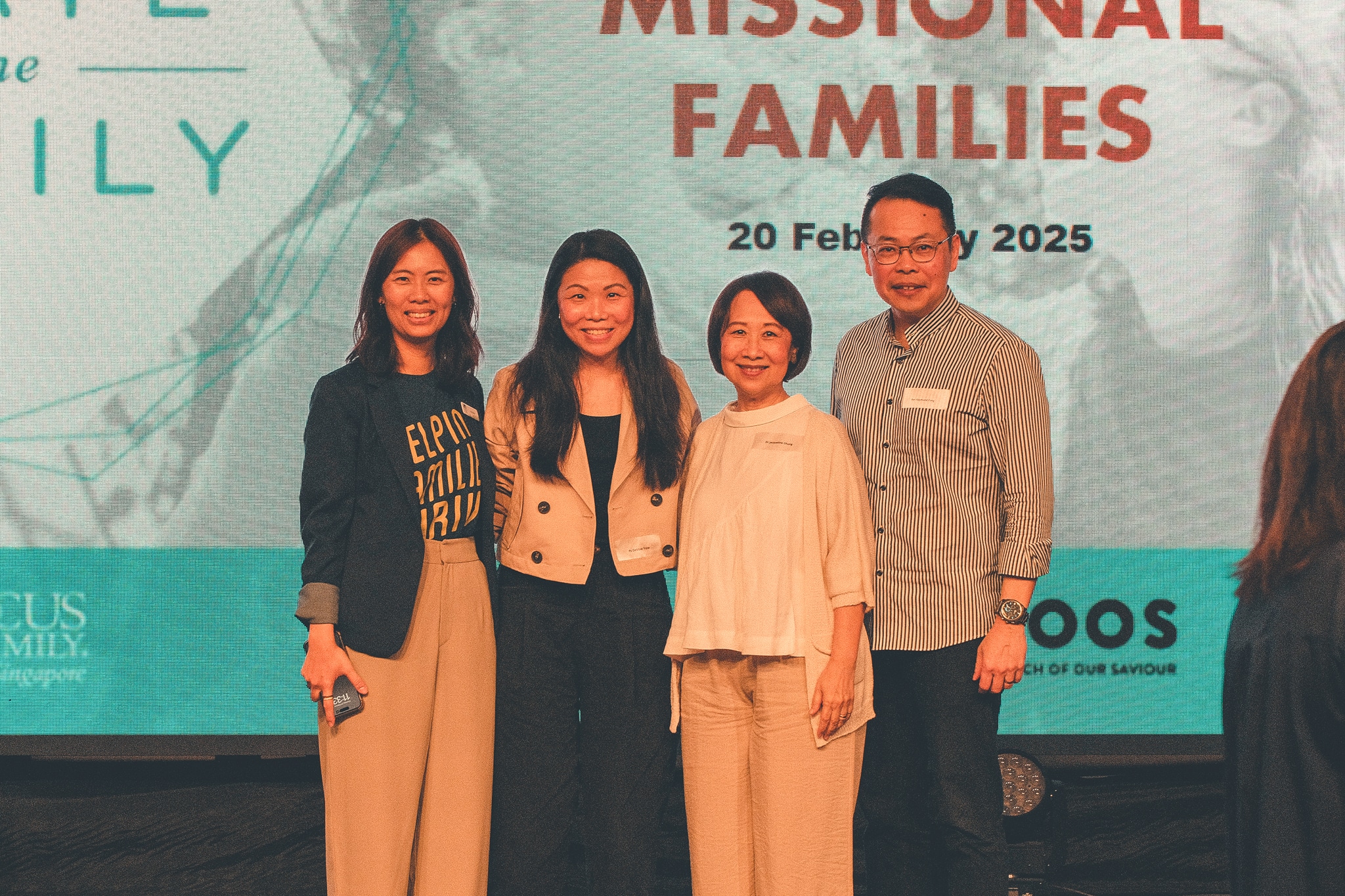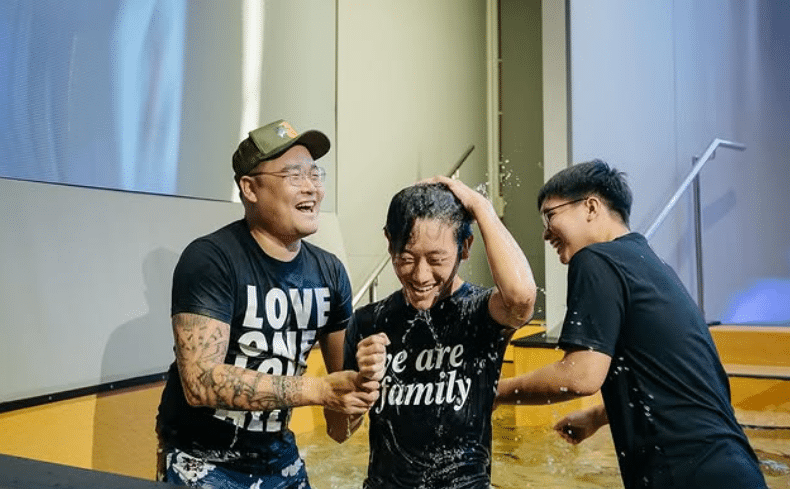“There is a silent holocaust happening”: Pastor Norman Ng to clergy on 50th anniversary of Abortion Bill
Pastor Norman Ng // March 20, 2020, 1:01 pm
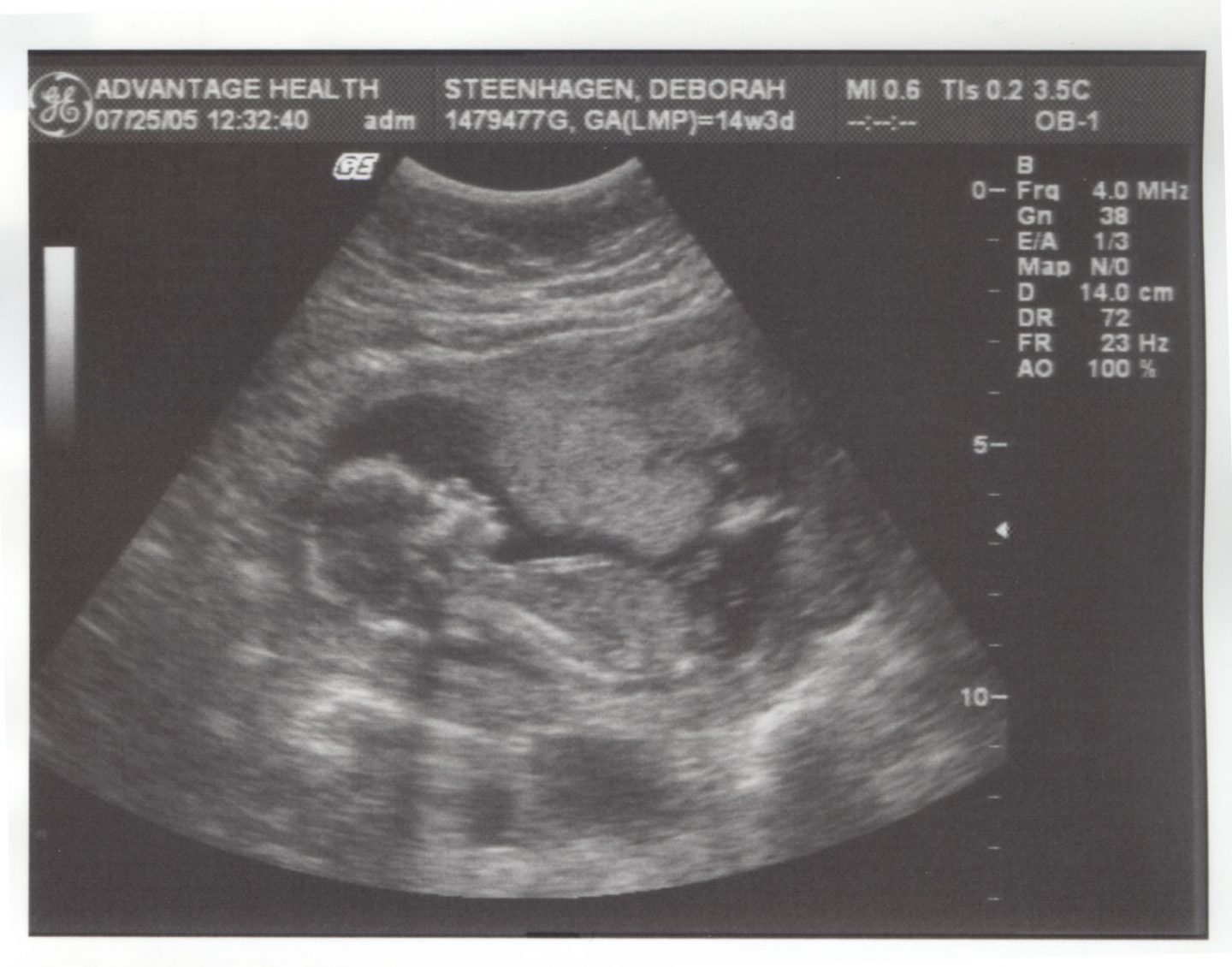
"As pastors, we are responsible, at least in part, for the values and beliefs that Christian youths hold toward abortion," says Pastor Norman Ng of 3:16 church. Photo by DebMomof3 on Flickr.
Dear Pastors,
Amidst all the challenges that COVID-19 has presented, there exists another global pandemic that has been silently taking away lives, even within the walls of our churches.
In the Church of Singapore, two of three young Christians say that abortion is acceptable most of the time.
Today marks the 50th anniversary since the Abortion Bill came into effect in Singapore on March 20, 1970. Since then more than half a million babies have been aborted.
Last year the Institute of Policy Studies published the findings of a national survey that indicated the general Singaporean’s perceptions, attitudes and beliefs toward the matter of life and abortion.
These results are akin to pastors and parents receiving our report card on how we have fared on that subject that nobody likes. (Evidently my statistics are still haunting me.)
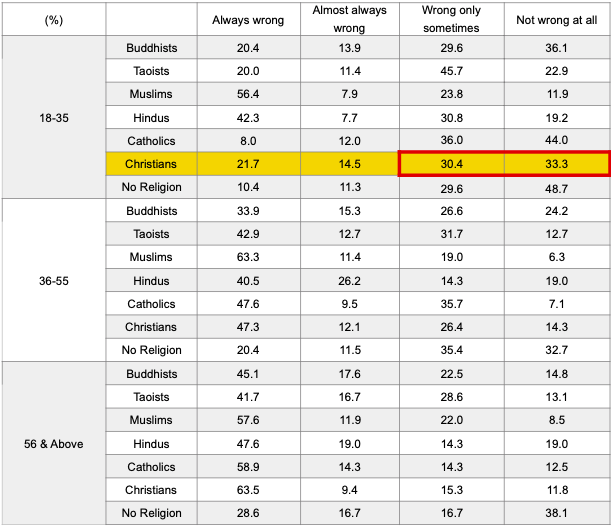
Attitudes towards abortion if the family has a very low income and cannot afford any more children. Table taken from Institute of Policy Studies.
In it we see that one in three young Christians aged 18 to 35 holds an extreme view that abortion is not wrong at all. Another one in three indicated that it is wrong only sometimes.
That means that in the Church of Singapore, two of three young Christians say that abortion is acceptable most of the time.
A pastoral issue, not a political one
As pastors, we are responsible, at least in part, for the values and beliefs that Christian youths hold toward abortion.
But this isn’t an easy topic to preach on. Many boards and congregations would question the wisdom in engaging with political issues. Some would even say that it distracts the Church from the Great Commission to disciple and evangelise.
Give youths a biblical narrative that … interprets cultural acceptance of the matter through the lens of the Bible.
Fellow Pastors, I would like to humbly submit to you that addressing the matter of life and abortion is not so much a political issue as much as it is a matter of discipleship.
The Great Commission emphasises “teaching them to obey everything I have commanded you” (Matthew 28:20).
Teaching our youths how to address the matter of life and abortion is essential for their generation, who face competing liberal ideologies on campus grounds and social media, where they spend most of their time.
Giving youths a biblical narrative that may be able to interpret the cultural acceptance of the matter through the lens of the Bible is part of discipleship that informs their Christian witness, today.
In the absence of such equipping, many have been silenced, are hiding when the topic comes up or, as the IPS Survey results suggest, have bought into the ideology of abortion.
Does the Bible say “thou shall not abort”?
Perhaps, one of the reasons we have not taught about this matter as much, is that for a Bible-believing Christian, one would reasonably assume that the stand on abortion should be very clear. “Thou shall not murder” (Exodus 20:13). How difficult is that?
In my time as a Youngish Pastor (I’m 39, barely but definitely a Millennial), I have been speaking to youths about this matter. It is evident to them that “Thou shall not murder” is very different from “Thou shall not abort”.
For, if abortion is legal to 24 weeks, widely accepted, and is a form of empowerment for a people group that faces discrimination, then surely, the moral merit that culture allots to it bears the weight of truth.
If it’s so serious, then why isn’t the church saying anything about it?
Pastors, can I suggest that perhaps, we might not know our youth’s position as well as we thought.
The conversations that our young people are having online and outside of churches are heavily nuanced and influenced by culture. They know the right things to say in Church but their values and beliefs could be quite the opposite.
“For You created my inmost being; You knit me together in my mother’s womb. I praise You because I am fearfully and wonderfully made; Your works are wonderful, I know that full well. My frame was not hidden from You when I was made in the secret place, when I was woven together in the depths of the earth. Your eyes saw my unformed body; all the days ordained for me were written in Your book before one of them came to be.” (Psalm 139:13-16, NIV)
“The word of the Lord came to me, saying, ‘Before I formed you in the womb I knew you, before you were born I set you apart; I appointed you as a prophet to the nations.’” (Jeremiah 1:4-5, NIV)
Scripture that speaks of the value of life at a foetal stage as depicted in Psalm 139 and Jeremiah 1 are good conversation starters on the sanctity of life and the Christian’s response to abortion.
When left unsaid, questions tend to emerge. Questions like: If abortion is legal and so accessible, why is it wrong? If it’s so serious, then why isn’t the Church saying anything about it?
I have heard these questions from young and mature Christians. From privileged individuals to unsupported young women struggling for answers.
To not equip (our youths) on a sound biblical foundation on life and abortion is to fail to love them.
From Christians parents encouraging their unwed daughter to go for an abortion to married couples who feel that three is just too many.
“If the members of the community close their eyes when that man sacrifices one of his children to Molek and if they fail to put him to death, I Myself will set My face against him and his family and will cut them off from their people together with all who follow him in prostituting themselves to Molek.” (Leviticus 20:4–5, NIV)
Leviticus 20 is a hard saying. Yet, it isn’t a stretch to liken abortion as a form of modern day child sacrifice on the altar of convenience and prosperity or, if I can be respectfully bold to say, church programmes.
There is a silent holocaust happening now with more than 25 million babies reported being aborted in Asia every year.
Pastors, we are more than partially responsible for our youth’s take on this matter. It’s one thing to fail on the results of this IPS report card. But to not equip them on a sound biblical foundation on life and abortion is to fail to love them.
Let’s have honest conversations with our young people about both life and abortion. Their answers might just surprise you.
An authentic Gospel community to the post abortive
Today, abortion is very accessible in Singapore. A quick Google search will point you to abortion clinics, rated and reviewed like cafés.
Abortion is allowed up to 24 weeks of pregnancy, and a minor does not require parental consent to abort her child.
The importance for us is to recognise that there are post-abortive moms and dads who are sitting in our pews.
Their senses: smell, vision, touch, taste, hearing are developing well. They can hear and recognise sounds and their breathing movements are in good practice.
A new study now shows that it is possible for a foetus to feel pain as early as 12 or 13 weeks gestation, which calls into question the accepted thoughts and practices on abortion in the medical field and in society at large.
In Singapore, the number of abortions peaked at 23,512 in 1985 during the “Stop at Two” campaign, which lasted from 1972 to 1987.
The most recent stats released saw 6,400 babies being aborted in 2018. And while the number of abortions is down by half in almost a decade, that’s still one life lost every 90 minutes in the Antioch of Asia. 2018 also saw the first increase in 10 years in abortions amongst women 19 and younger.
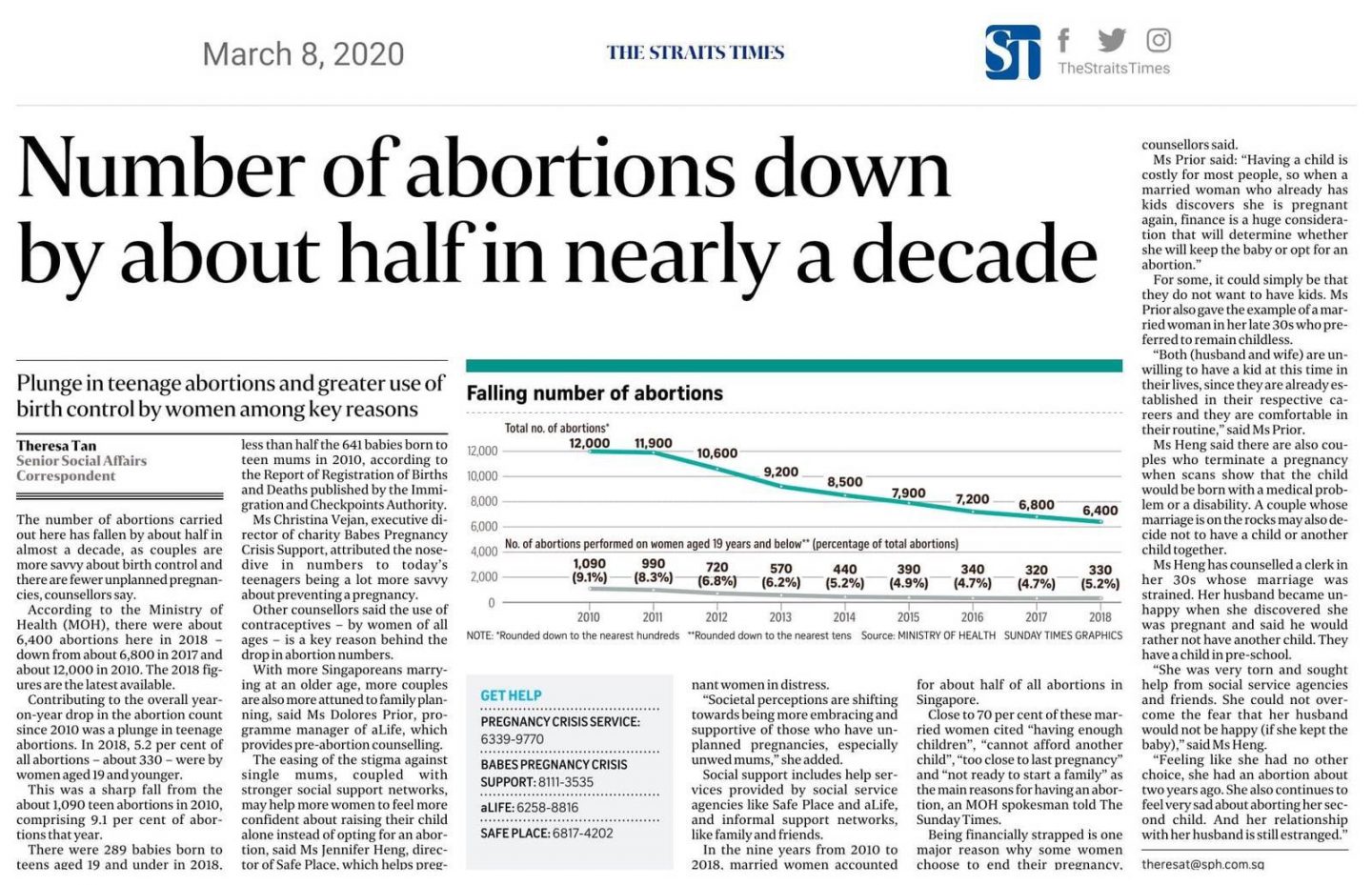
Even though the number of abortions has been down by about half in nearly a decade, that is still one life lost every 90 minutes. Screenshot taken from The Straits Times.
The importance of these figures for us, as pastors, is to recognise that there are post-abortive moms and dads who are sitting in our pews.
A survey of 388 people during HeartbeatProject.sg events saw 7% of Christians indicating that they have had abortions before and 66% of Christians knowing someone who had an abortion. This is a significant group in our churches.
Last year at Day of His Power, a national prayer event hosted by the LoveSingapore network of churches, we were led to mark the Jubilee year of the abortion bill by praying for Christians who have had abortions. That those who have been carrying the guilt of their decision could find a measure of breakthrough and healing.
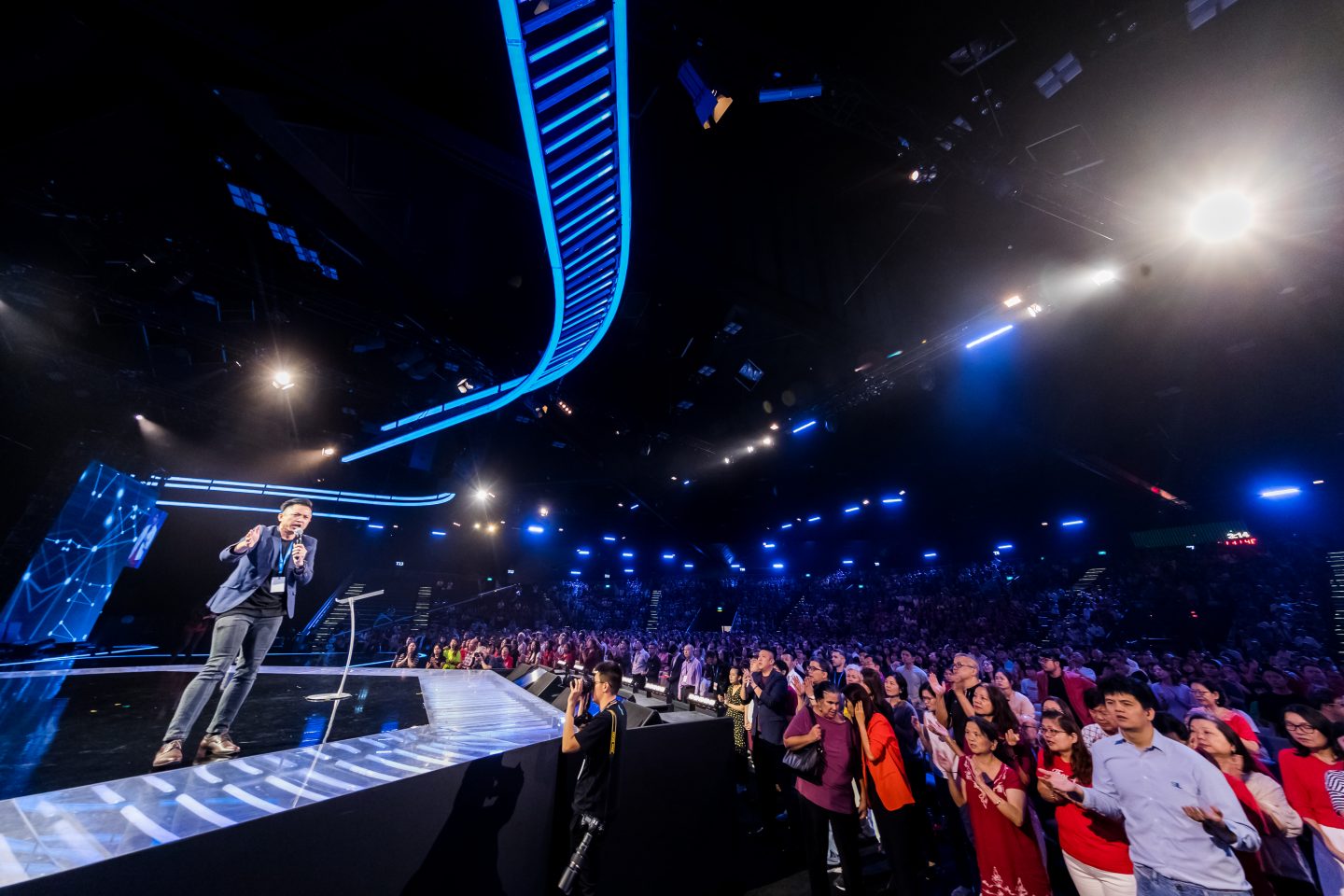
Pastor Norman speaking at Day of His Power, where he prayed for Christians who have had abortions. Photo courtesy of Pastor Norman Ng.
As the invitation went out, we saw hundreds in the crowd come down to the altar to be prayed for. As they did so, the crowd of 5,000 brothers and sisters at Suntec convention hall sang over them, as a sign of acceptance and assurance that there is now no more condemnation for those who are in Christ Jesus (Romans 8:1).
Discipling our people on abortion will make the Church a safer place to raise matters like this.
This however was the unusual one-off event. Abortion is still largely a taboo topic in the modern day church of Singapore. Many have not been able to process the guilt and shame of abortion because we simply don’t talk about it.
But if we continue to treat this as the most shameful sin, we cultivate a culture where it cannot be raised. Consequently, those in a pregnancy crisis, young or old, might choose to have an abortion in silence rather than to seek the support that could help them make a life-giving decision.
Fellow Pastors, I plead with you to consider addressing this issue over the pulpit or within small groups and congregational ministries. Discipling our people in this matter will make the Church a safer place to raise matters like this. It will also equip them with the right values and tools to potentially help a friend navigate through an unplanned pregnancy with truth and grace. That is all part of the Great Gommission and being an authentic Gospel community to those dealing with guilt and shame.
From One Pastor to Another,
Ps Norman
“We will not choose”: Parents who adopted four babies, three with special needs
We are an independent, non-profit organisation that relies on the generosity of our readers, such as yourself, to continue serving the kingdom. Every dollar donated goes directly back into our editorial coverage.
Would you consider partnering with us in our kingdom work by supporting us financially, either as a one-off donation, or a recurring pledge?
Support Salt&Light

